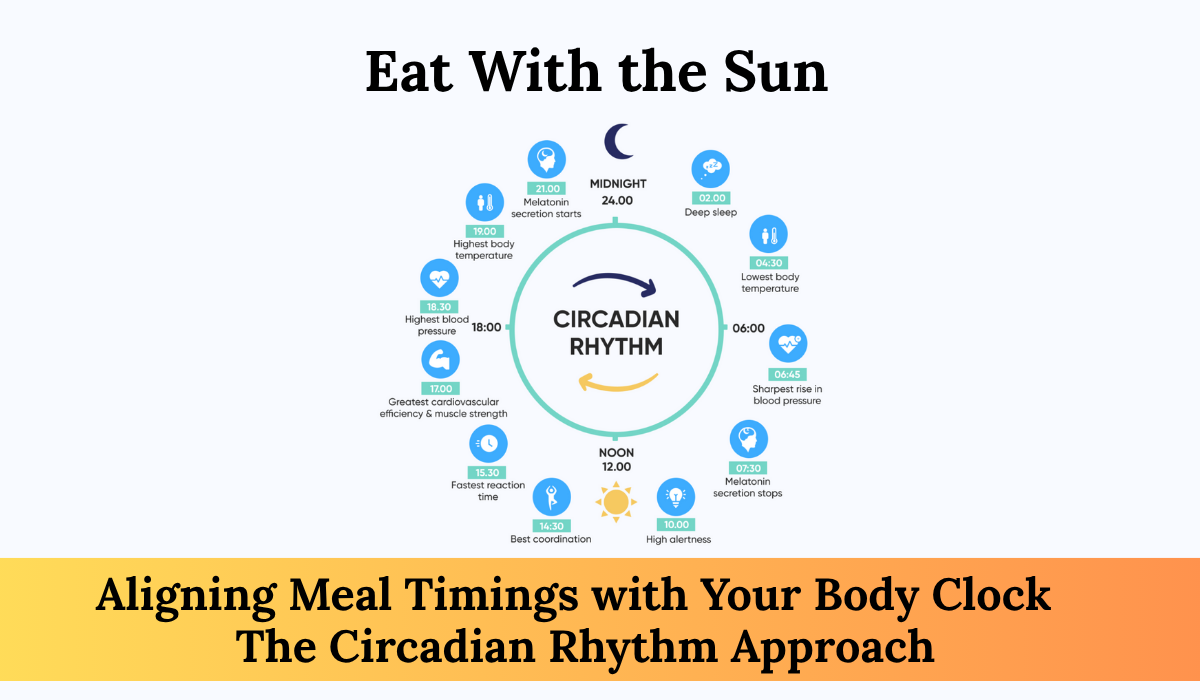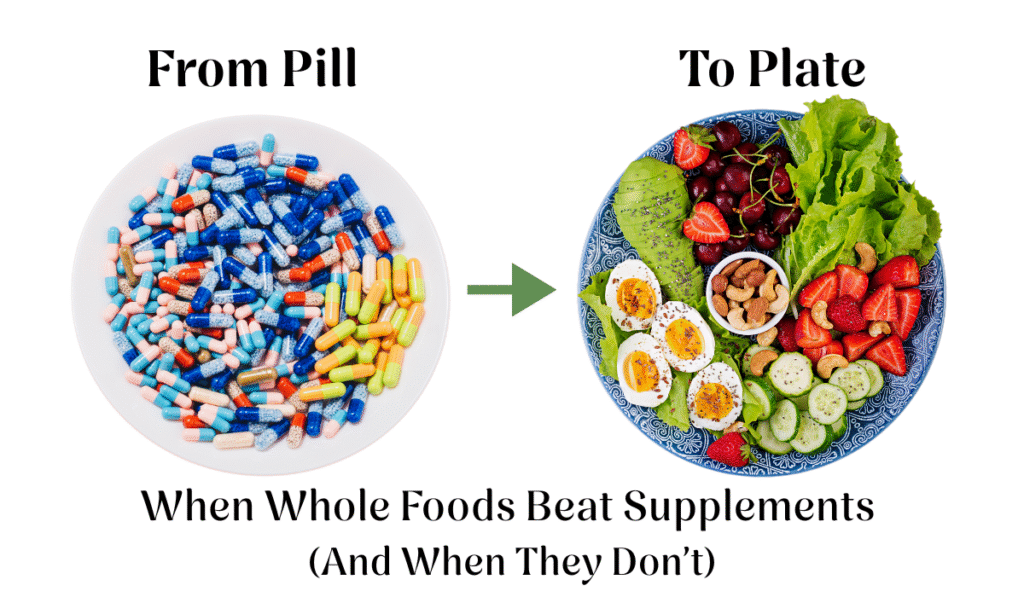We often hear “what” to eat for health, but rarely “when.” Yet timing your meals may matter as much as your macros. In fact, ancient Indian traditions and modern chronobiology agree on one surprising truth: when you eat can shape how well you digest, absorb, and metabolize your food.
Welcome to the science (and simplicity) of eating with the sun—syncing your meals with your body’s natural circadian rhythm.
What Is the Circadian Rhythm?
Your circadian rhythm is your body’s internal 24-hour clock. It controls everything from your sleep-wake cycle to hormone release and even how your body processes food.
Your digestive system isn’t “on” 24/7—it works in cycles. Aligning your meals with your circadian rhythm can lead to:
-
Better digestion
-
Balanced blood sugar
-
Improved energy
-
Deeper sleep
-
Reduced cravings and weight regulation
Ayurveda has long supported this idea, encouraging eating in tune with Agni (digestive fire), which is said to be strongest at midday and weakest after sunset.
Why Eating With the Sun Works
-
Morning (6 am – 10 am): Body is waking up, cortisol is high, digestion is starting to ramp up. Light, warm meals support this natural flow.
-
Midday (10 am – 2 pm): Peak metabolic activity. This is when digestive enzymes and bile are at their best—perfect time for your main, heaviest meal.
-
Evening (after 6 pm): Digestive function slows, melatonin starts rising. Heavy meals at this time are harder to break down, often disturbing sleep and weight balance.
How to Align Your Meals with Your Circadian Clock
Here’s a practical breakdown of meal timing and composition:
1. Morning (6:00 – 9:00 AM): Ease Into the Day
Why it matters: Your body is just waking up, and digestion is still gentle.
Eat:
-
Warm, light foods like soaked nuts, fruits, ghee-roasted poha or upma
-
Herbal teas, warm water with lemon or cumin
-
Small portions of protein and complex carbs
Avoid:
-
Cold smoothies, heavy dairy, fried foods
-
High caffeine right after waking (wait 60–90 mins)
2. Mid-Morning (9:30 – 11:30 AM): Optional Mini-Meal
Why it matters: This is when your body is moving into its metabolic groove.
Eat (if hungry):
-
A fruit, handful of seeds/nuts, buttermilk
-
Light smoothies (not ice-cold), or a small bowl of curd with spices
Tip: Stay hydrated with jeera-ajwain or fennel water for digestion.
3. Lunch (12:00 – 2:00 PM): The Main Event
Why it matters: This is when your digestive fire (Agni) is at its peak. Your body can handle the most complex meal now.
Eat:
-
Balanced thali: dal, sabzi, whole grain (roti, rice, millet), curd, ghee
-
Include cooked vegetables and a small salad (not cold)
-
A small sweet post-lunch is acceptable here (like jaggery-based treats)
Avoid:
-
Skipping lunch or eating on the go
-
Heavy desserts or packaged drinks
4. Evening Snack (4:00 – 6:00 PM): Refuel Without Overloading
Why it matters: Cortisol dips, blood sugar may fall—smart snacking prevents bingeing later.
Eat:
-
Roasted chana, makhana, vegetable soup, fruit with nut butter
-
Herbal teas like tulsi or ginger
Avoid:
-
Sugary snacks, caffeine-heavy drinks
-
Fried snacks or cold beverages
5. Dinner (6:30 – 8:00 PM): Keep It Light and Early
Why it matters: Your digestive system is winding down. Eating too late or heavy can impair sleep and metabolism.
Eat:
-
Soups with moong dal, soft khichdi, lightly sautéed veggies
-
Small portion of grains with a protein (egg, tofu, paneer, dal)
-
Herbal teas like chamomile or cumin water post-meal
Avoid:
-
Raw salads, heavy desserts, late-night snacks
-
High-fat, high-protein meals at night
6. Fasting Window (Post 8 PM – 8 AM): Time for Repair
Why it matters: Giving your digestive system 12 hours to rest supports gut repair, insulin sensitivity, and detox pathways.
Tip: Try not to snack after dinner. Let your body focus on healing—not digesting.
Ancient Wisdom Meets Modern Science
-
Ayurveda: Encourages eating largest meal at noon and light dinners
-
Chrono-nutrition studies: Show better blood sugar, weight, and lipid profiles in people who eat earlier in the day
-
Modern advice: Intermittent fasting (especially early time-restricted eating) overlaps with this approach
Simple Weekly Meal Timing Plan
| Time of Day | What to Eat | Why It Works |
|---|---|---|
| 7:30 AM | Warm water + soaked nuts | Kickstart metabolism gently |
| 9:00 AM | Light breakfast (poha, fruit, sprouts) | Supports gentle digestion |
| 1:00 PM | Heaviest meal (full thali) | Max digestive capacity |
| 5:00 PM | Snack (nuts, soup, fruit) | Prevents overeating at dinner |
| 7:30 PM | Light dinner (khichdi, soup) | Prepares body for rest |
| 8:30 PM onwards | Digestive teas, fasting window | Supports gut healing |
Conclusion: Timing is Nourishment
What you eat is vital—but when you eat is equally powerful.
Eating with the sun is not about being rigid; it’s about listening to your body’s rhythms and honoring them.
Whether you’re looking to improve digestion, balance hormones, or support overall wellness—meal timing might be your missing link.
Start small. Shift one meal. Watch the difference.



